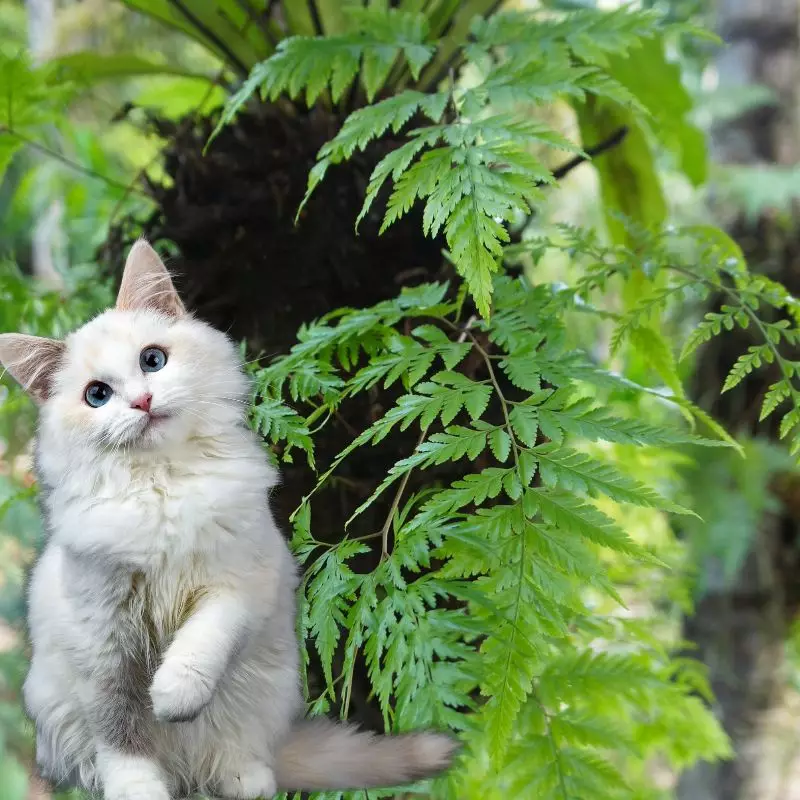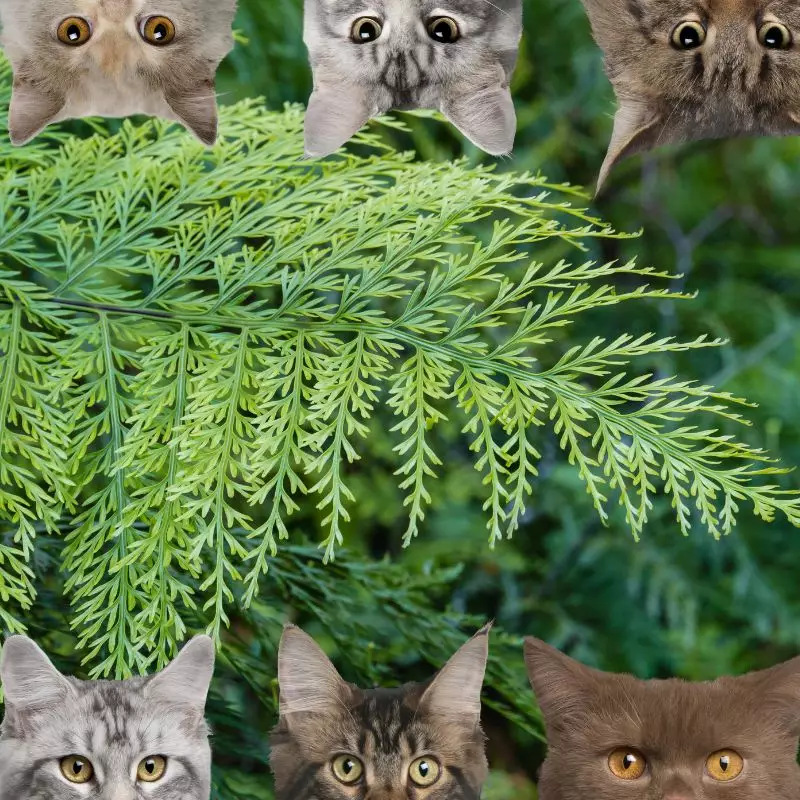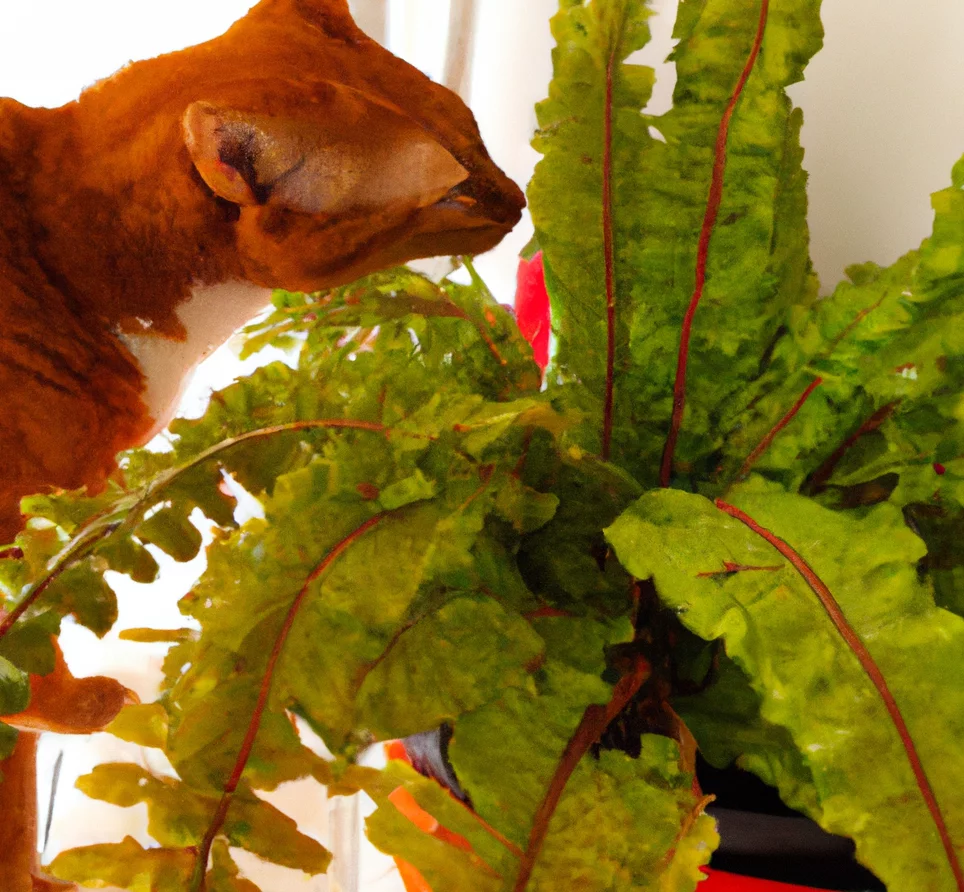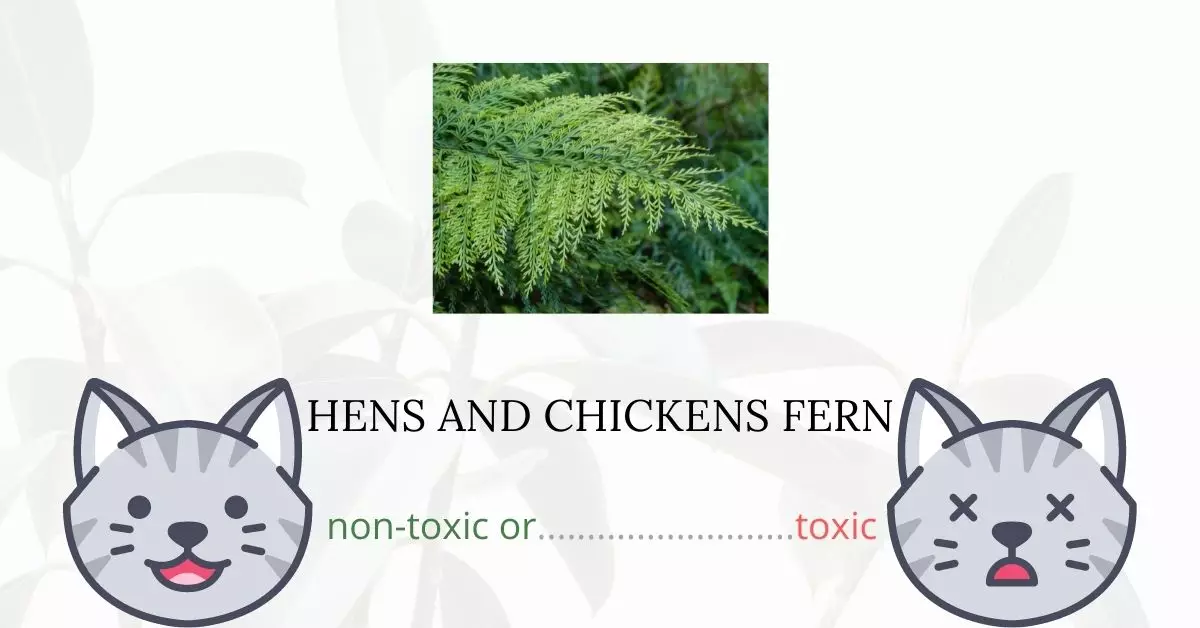No, Hens and Chickens Fern is not toxic for cats.
This article was crafted in close collaboration with a team of experienced DVMs (doctors of veterinary medicine). Their invaluable insights and expertise enable us to provide precise and contemporary information about the potential risks associated with various plants. Specifically, for this article, we delved into the effects of Hen and Chickens Fern on felines. Furthermore, our research was supplemented by information from high-authority websites such as the ASPCA and PetMD to ensure thoroughness and accuracy.
Pet owners in search of safe, non-toxic indoor plant options can confidently include the Hens and Chickens Fern in their homes.
Can Cats Eat Hen and Chickens Fern?

Eating a reasonable amount of this plant will not cause serious harm to your kitty. A curious cat may find this tropical fern extremely alluring. Even though chicken and hens fern is safe for cats to consume, any plant may create an allergic reaction in some animals or represent a choking risk.
Large amounts of plant stuff can perhaps irritate your cat’s stomach if he eats it. So if your cats decide the fern is tasty, you should try to keep them away from it.
What is Hen and Chickens Fern?

Hen and Chickens Fern (Asplenium bulbiferum) is also called Mother Fern, Mother Spleenwort, New Zealand Common Spleenwort, and Pikopiko. The majority of New Zealand’s bush areas are home to this tropical fern, which is uniquely native to that country.
It is offered for sale commercially in other locations as an indoor house plant grown in containers. It is a member of the Spleenwort fern family, so named because it was once thought that these plants had therapeutic benefits for the spleen.
This fern is distinguished by airy, beautifully cut fronds that grow from a single crown. Tall fronds that reach a height of 4 ft. gently arch. Spleenworts don’t produce any flowers or fruit; instead, they reproduce predominantly through spores that are found in sores on the undersides of their fronds.
Maoris use the native plant, which is edible and native, as a food source by gathering the young fronds, which may be consumed raw or cooked like a vegetable. It looks beautiful in hanging baskets, mass plantings, containers, and display settings in woodland or gloomy gardens. It can be cultivated inside in a light area, away from the sun, with regular watering to keep it evenly wet.
Keeping Cats Away From Hen and Chickens Fern

For many cat owners, preventing cats from getting into plants is a full-time effort. You might want to place your plants out of reach if you have a cat that is exceptionally skilled at jumping.
Both a high cupboard or the top of a bookcase are acceptable places to put it. Simply be cautious not to place the plant too close to the edge because you don’t want it to fall and break.
Try distracting your cat with some cat toys if you’re having trouble keeping it away from the plants. There are several toys available, including as scratching posts, simple balls, wand toys, and puzzle toys.
Plants to Avoid For Your Cats
If you are a cat owner and unsure if the plants growing in your yard are harmful to your cats, check out this list of toxic plants for cats. You can also check our list of non-toxic plants for cats.





